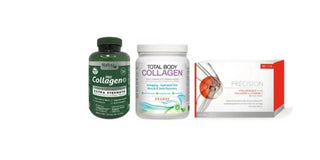New roots - glutamic acid 500 mg - 100 caps
- Unit price
- / per
Since 1984
Your details are protected and safe with us.
New roots - glutamic acid 500 mg - 100 caps
- Unit price
- / per
Adding product to your cart
Similar products
Since 1984
Your details are protected and safe with us.
Similar products
Similar products
Product description
Glutamic acid is beneficial for the maintenance of good prostate health, muscle recovery, and brain function.
Glutamic acid is a nonessential amino acid used by the body to manufacture human protein, a vital component of all the body’s cells. This amino acid is labeled “nonessential” because, when the acids are lacking in the diet, the body can manufacture them. All nonessential amino acids must be on-hand before the body can synthesize protein; several have additional, more specialized roles as well. Glutamic acid is biosynthesized from a number of amino acids, including ornithine and arginine. When aminated, glutamic acid forms the important amino acid glutamine. Because it has a carboxylic acid moiety (functional group) on the side chain, glutamic acid is one of only two amino acids (the other being aspartic acid) that has a net negative charge at physiological pH. This negative charge makes glutamic acid a very polar molecule, and it is usually found on the outside of proteins and enzymes, where it is free to interact with the aqueous intracellular surroundings.
It is an organic compound, one of the 20 amino acids commonly found in animal proteins. Only the ʟ stereoisomer occurs in mammalian proteins. Like aspartic acid, glutamic acid has an acidic carboxyl group on its side chain, which can serve as both an acceptor and a donor of ammonia, a compound toxic to the body. Once glutamic acid has coupled with ammonia, it is called glutamine and can as such safely transport ammonia to the liver, where the ammonia is eventually converted to urea for excretion by the kidneys. Free glutamic acid (not incorporated into proteins) can also be converted reversibly to ketoglutaric acid, an intermediate in the Krebs cycle, and as such can be degraded to carbon dioxide and water, or transformed into sugars. The acidic side chain of glutamic acid confers one negative charge under most conditions to proteins in which this amino acid is found, thus increasing the water solubility of the protein.
Glutamic acid is an important excitatory neurotransmitter, necessary in the metabolism of sugars and fats, and supports prostate function.
Adults: Take 3 capsules daily with meals and water or as directed by your health-care practitioner.
Discover more similar products
Best sellers
$25.99
- Unit price
- / per
New roots - potassium iodide emergency 65mg - 60 tabs
$47.99
- Unit price
- / per
$47.99
- Unit price
- / per
$24.99
- Unit price
- / per
$25.95
- Unit price
- / per
Ideal protein - omega-3 plus 60 softgels (exp:2025-01-31)
$39.99
- Unit price
- / per
$39.99
- Unit price
- / per
from $31.99
- Unit price
- / per
$34.50
- Unit price
- / per
Med marijuana - mm gel cannabis sativa seed oil - 90 gcaps
$31.99
- Unit price
- / per
$31.99
- Unit price
- / per
$34.50
- Unit price
- / per
Ideal protein - salted caramel flavoured chocolatey clusters
$34.50
- Unit price
- / per
$34.50
- Unit price
- / per
$34.50
- Unit price
- / per
$32.95
- Unit price
- / per
$34.50
- Unit price
- / per
$34.50
- Unit price
- / per
Ideal protein - branched chain amino acids fruit punch - 14 packets
$28.99
- Unit price
- / per
$28.99
- Unit price
- / per
Warning
We strive to provide accurate product information, but manufacturers may sometimes change their ingredient lists, which may result in differences between the information displayed on our website and the information on the product packaging. We recommend that you do not rely solely on the information presented on the site and always read labels, warnings, and directions before using or consuming a product. For additional information about a product, please contact the manufacturer. The information provided on this site is for reference purposes only and does not replace the advice of a licensed healthcare professional. You should not use this information to diagnose or treat a health problem or disease. Contact a healthcare professional immediately if you suspect you have a health problem.
Quick and Efficient



















